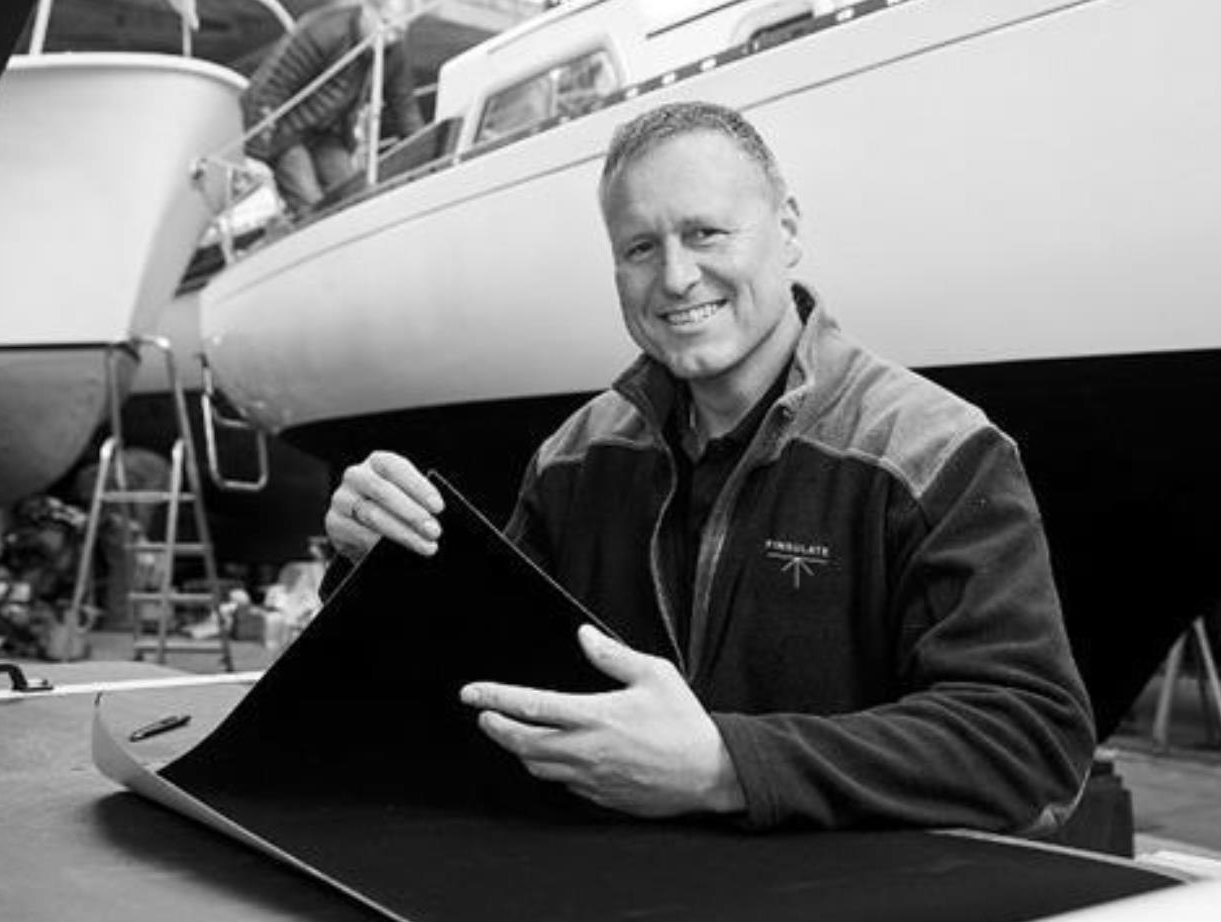Three Boats at the 2023 In-Water HISWA had Finsulate Wrap Beneath Their Waterlines
Finsulate, a Dutch maker of a non-toxic, antifouling film, says his advocacy for clean waterways finds a growing echo among boat owners looking for a biocide-free hull coating.
Traditional antifouling paints fight algae, mussels and barnacles with toxic substances. Applying them is nasty work and may require annual applications.

But Finsulate wrap – for which Rik Breur won a European Inventor Award in 2019 – uses no poisonous products. His wrap uses fine fibers packed tightly together to keep organisms off the hull. If fouling occurs, it is easily brushed off, says Breur.
Three boats at the 2023 In-Water HISWA had Finsulate wrap beneath their waterlines. “It is slowly becoming an accepted product,” Breur told IBI. Recent clients include a Vaan R4, a luxurious, sustainable catamaran, a Craftmanship Cabin Tender 760, and a Bavaria sailing yacht.
“We have now done over 800 boats – about 500 sailboats, 200 sloops and tenders and 100 larger motoryachts and motor cruisers,” says Breur. “I estimate 70% in the Netherlands, the rest spread over Europe and North America, from Vancouver down to Cancun, Mexico.”
He notices a greater variety of clients. “In May, we did a first Heesen yacht for a Dutch client in Spain,” says Breur.
“Certified installers apply Finsulate as that requires practical experience and skills. The certified installation also enables us to warrant Finsulate for five years.”
But he adds, “In 2022, we analysed the material of a boat that had been sailing with Finsulate for eight years. To check for any degradation. There was none, so we can now say the material will last 8-10 years.
Finsulate won the Hiswa Product of the Year award in 2018. The following year, it won first prize in the European Inventor of the Year competition.
The product, says Breur, “is admittedly more expensive than conventional antifouling but lasts longer and that recoups the investment.